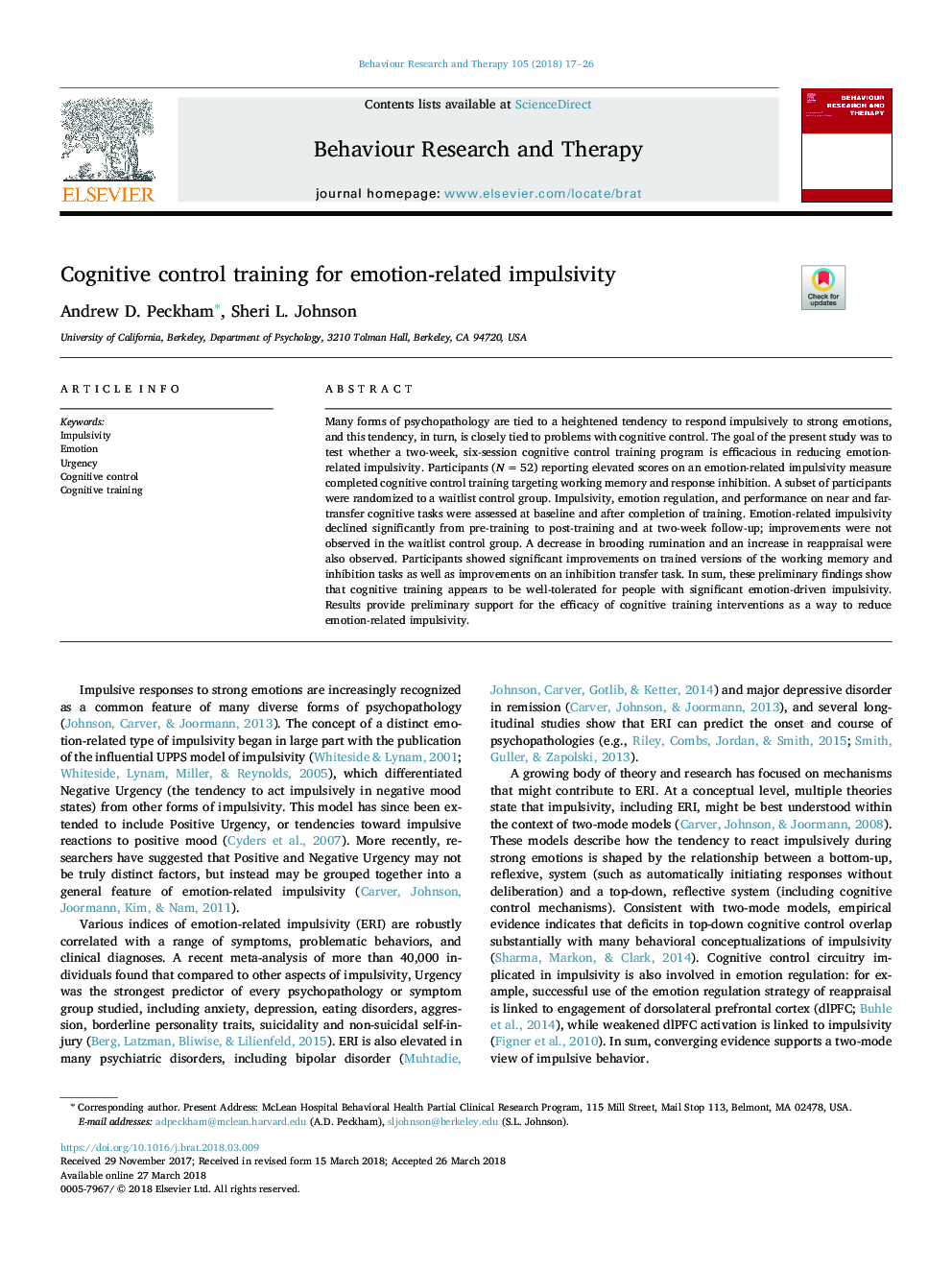| Article ID | Journal | Published Year | Pages | File Type |
|---|---|---|---|---|
| 7261805 | Behaviour Research and Therapy | 2018 | 10 Pages |
Abstract
Many forms of psychopathology are tied to a heightened tendency to respond impulsively to strong emotions, and this tendency, in turn, is closely tied to problems with cognitive control. The goal of the present study was to test whether a two-week, six-session cognitive control training program is efficacious in reducing emotion-related impulsivity. Participants (Nâ¯=â¯52) reporting elevated scores on an emotion-related impulsivity measure completed cognitive control training targeting working memory and response inhibition. A subset of participants were randomized to a waitlist control group. Impulsivity, emotion regulation, and performance on near and far-transfer cognitive tasks were assessed at baseline and after completion of training. Emotion-related impulsivity declined significantly from pre-training to post-training and at two-week follow-up; improvements were not observed in the waitlist control group. A decrease in brooding rumination and an increase in reappraisal were also observed. Participants showed significant improvements on trained versions of the working memory and inhibition tasks as well as improvements on an inhibition transfer task. In sum, these preliminary findings show that cognitive training appears to be well-tolerated for people with significant emotion-driven impulsivity. Results provide preliminary support for the efficacy of cognitive training interventions as a way to reduce emotion-related impulsivity.
Related Topics
Health Sciences
Medicine and Dentistry
Psychiatry and Mental Health
Authors
Andrew D. Peckham, Sheri L. Johnson,
